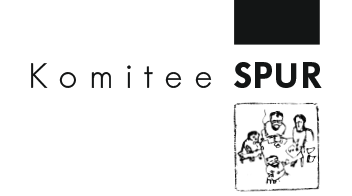
- 1934 born in Roding / Upper Palatinate on the 27th of May
- 1936 moves with his parents to Berlin, where they stay until 1938
- 1938–1940 stays with a sister of his mother in Waffenbrunn near Prinzing / Upper Palatinate
- 1940 return to Roding / Upper Palatinate
- 1949–1952 Hauptschulabschluss (basic school qualification), successful completion of an apprenticeship as a decorative painter in Schwandorf
- 1952–1955 studies painting at the Academy of Fine Arts, Munich, in the class of Josef Oberberger and from 1955 on sculpture in the class of Toni Stadler.
- 1956 Prem and Helmut Sturm travel together to a Rembrandt-exhibition in Amsterdam. He then moves with Josef K. Senft (J. K. S. Hohburg) to Berlin to study painting in the class of Ernst Schumacher at the University of Arts.
- 1957 return to Munich, close contact with Lothar Fischer, Helmut Sturm and HP Zimmer at the Academy
- 1957/1958 co-founder of the artist collective SPUR
- 1959 German Youth Art Award, Baden-Baden.
- 1959–1962 member of the Situationist International (S.I.)
- 1960 scholarship granted by the Federal Association of the German Industry
- 1961 meets photographer Monika Maier
- 1962 acquires a little ore miner's hut in Fusch at the Großglockner / Austria
- 1963 Markus, Monika Maier's and Prem's first son, is born.
- 1964 marries Monika Maier in Munich, birth of his second son Boris, participation in the documenta III, Kassel
- 1965 collaboration of SPUR with the Munich based group WIR. The joint magazine SPUR WIR is published. Moves with his family to Fusch and later on to southern Sweden to live in the side wing of an old castle near Örkelljunga
- 1966 the groups SPUR and WIR adopt the common group name GEFLECHT. He returns to Bavaria and moves into an old farmhouse in Oberholzham in the rural district of Bad Aibling. Birth of his third son Fabian
- 1967 birth of daughter Natscha. Prem privately organizes his first Weißes Fest (a carnival party all in white). The family moves into an old parsonage in Moosach near Grafing
- 1968 organization of his first commercial Weißes Fest together with sculptor Otto Dressler (born 1938). These parties still take place once a year in the Max-Emanuel-Brewery in Munich-Schwabing during the carnival season.
- 1969 birth of his twin sons Elias and Raphael
- 1971 attempted suicide, long stay in hospital
- 1972/1973 production of two films in Italy in collaboration with Willi Bleicher: Bilder wachsen (1972) and Nach und Nach (1973). Unsuccessful application for a professorship at the Academy of Fine Arts, Munich
- 1976 co-founder of the artist community KOLLEKTIV HERZOGSTRASSE, special Prem-exhibition as part of the Munich Art Show in the Haus der Kunst, Munich; birth of his seventh child Leander
- 1976/1977 lecturer at the Winter Academy in Kißlegg castle
- 1978 suicide on the 19th of February
Literature (selection)
Pia Dornacher, Heimrad Prem 1934–1978. Leben und Werk, Diss. München 1995. Margarethe Jochimsen und Pia Dornacher (Hrsg.)
Heimrad Prem. Retrospektive und Werkverzeichnis, mit einem Werkverzeichnis von Pia Dornacher, Ausst.-Kat. Bonner Kunstverein, Kunsthalle zu Kiel, Kunstverein Wolfsburg, Städtische Galerie im Lenbachhaus, München, München, New York 1995.
Galerie van de Loo (Hrsg.), Heimrad Prem. Werke aus der SPUR - Zeit, Ausst.-Kat. Galerie van de Loo Projekte, München 2014.
Galerie van de Loo (Hrsg.), Heimrad Prem. Bilder 1959–1965. Dokumentation und Lagerkatalog, Ausst.-Kat. Galerie van de Loo, München 1974.
Roberto Ohrt, »Heimrad Prem. Produktivität des Konflikts«, in: Künstler. Kritisches Lexikon der Gegenwartskunst, Ausgabe 14, München 1991
Monika Prem (Hrsg.), Heimrad Prem. Tagebuchnotizen 1963-1967, München 2013.
Die Angaben wurden in leicht überarbeiteter Form entnommen aus: Ilonka Czerny, „Künstlerbiografien, Ausstellungen der Gruppe SPUR, Literatur zur Gruppe SPUR“, in: Jo-Anne Birnie Danzker und Pia Dornacher (Hrsg.), Gruppe SPUR, Ausst.-Kat. Museum Villa Stuck, München u.a., Ostfildern 2006, S. 90–97
